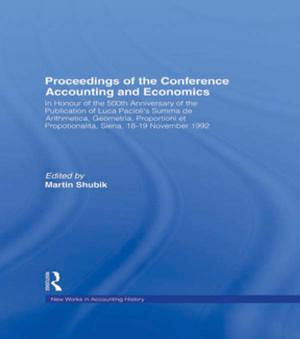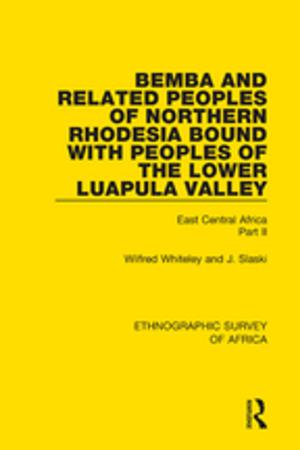The Anthropocene Debate and Political Science
Business & Finance, Economics, Sustainable Development, Nonfiction, Social & Cultural Studies, Political Science, Government, Public Policy| Author: | ISBN: | 9781351174107 | |
| Publisher: | Taylor and Francis | Publication: | September 3, 2018 |
| Imprint: | Routledge | Language: | English |
| Author: | |
| ISBN: | 9781351174107 |
| Publisher: | Taylor and Francis |
| Publication: | September 3, 2018 |
| Imprint: | Routledge |
| Language: | English |
Anthropocene has become an environmental buzzword. It denotes a new geological epoch that is human‐dominated. As mounting scientific evidence reveals, humankind has fundamentally altered atmospheric, geological, hydrological, biospheric, and other Earth system processes to an extent that the risk of an irreversible system change emerges. Human societies must therefore change direction and navigate away from critical tipping points in the various ecosystems of our planet. This hypothesis has kicked off a debate not only on the geoscientific definition of the Anthropocene era, but increasingly also in the social sciences. However, the specific contribution of the social sciences disciplines and in particular that of political science still needs to be fully established.
This edited volume analyzes, from a political science perspective, the wider social dynamics underlying the ecological and geological changes, as well as their implications for governance and politics in the Anthropocene. The focus is on two questions: (1) What is the contribution of political science to the Anthropocene debate, e.g. in terms of identified problems, answers, and solutions? (2) What are the conceptual and practical implications of the Anthropocene debate for the discipline of political science?
Overall, this book contributes to the Anthropocene debate by providing novel theoretical and conceptual accounts of the Anthropocene, engaging with contemporary politics and policy-making in the Anthropocene, and offering a critical reflection on the Anthropocene debate as such. The volume will be of great interest to students and scholars of political science, global environmental politics and governance, and sustainable development.
Anthropocene has become an environmental buzzword. It denotes a new geological epoch that is human‐dominated. As mounting scientific evidence reveals, humankind has fundamentally altered atmospheric, geological, hydrological, biospheric, and other Earth system processes to an extent that the risk of an irreversible system change emerges. Human societies must therefore change direction and navigate away from critical tipping points in the various ecosystems of our planet. This hypothesis has kicked off a debate not only on the geoscientific definition of the Anthropocene era, but increasingly also in the social sciences. However, the specific contribution of the social sciences disciplines and in particular that of political science still needs to be fully established.
This edited volume analyzes, from a political science perspective, the wider social dynamics underlying the ecological and geological changes, as well as their implications for governance and politics in the Anthropocene. The focus is on two questions: (1) What is the contribution of political science to the Anthropocene debate, e.g. in terms of identified problems, answers, and solutions? (2) What are the conceptual and practical implications of the Anthropocene debate for the discipline of political science?
Overall, this book contributes to the Anthropocene debate by providing novel theoretical and conceptual accounts of the Anthropocene, engaging with contemporary politics and policy-making in the Anthropocene, and offering a critical reflection on the Anthropocene debate as such. The volume will be of great interest to students and scholars of political science, global environmental politics and governance, and sustainable development.















